Medical Surgical Nursing Preparation For Practice 2nd Edition By Osborn – Test Bank
Chapter 11
Question 1
Type: MCSA
A terminally ill patient is experiencing dyspnea. What should the nurse do to help the patient feel more comfortable?
1. Raise the head of the bed.
2. Gently massage the patient.
3. Replace the oxygen cannula with a face mask.
4. Provide oral care.
Correct Answer: 1
Rationale 1: Elevating the head of the bed reduces choking sensations and promotes expansion of the lungs.
Rationale 2: Massage has not been shown to reduce dyspnea, but will help reduce discomfort from accumulating edema in the extremities.
Rationale 3: Face masks often make the patient more dyspneic.
Rationale 4: Providing oral care is not the best answer for reducing dyspnea.
Global Rationale:
Cognitive Level: Applying
Client Need: Physiological Integrity
Client Need Sub: Physiological Adaptation
Nursing/Integrated Concepts: Nursing Process: Implementation
Learning Outcome: 11-4
Question 2
Type: MCSA
A competent elderly patient has a living will that specifies avoiding resuscitation and heroic life support measures. The family members are not supportive of this directive. Which action by the nurse is most appropriate?
1. Consider the document valid and document its existence in the medical record.
2. Contact the Social Services department.
3. Notify the hospital attorney.
4. Explain to the patient that the conflict could invalidate the document.
Correct Answer: 1
Rationale 1: The patient is competent. The nurse should consider this document valid and should advocate for the patient’s wishes by including the information in the medical record.
Rationale 2: If there are concerns about the authenticity of the document, the Social Services department or the unit supervisor will need to be contacted.
Rationale 3: The nurse would not contact the hospital attorney but would make the situation known to the unit supervisor.
Rationale 4: A lack of support by the family does not invalidate the document.
Global Rationale:
Cognitive Level: Analyzing
Client Need: Safe Effective Care Environment
Client Need Sub: Management of Care
Nursing/Integrated Concepts: Nursing Process: Implementation
Learning Outcome: 11-2
Question 3
Type: MCSA
While preparing for the discharge of an elderly, terminally ill patient, the family asks for information concerning the most appropriate time to become involved with a hospice agency. Which action by the nurse is most appropriate?
1. Assist the family in making contact with a hospice agency at this time.
2. Estimate the patient’s life expectancy to gauge when contact with hospice should be made.
3. Encourage the family to “hold off” making the contact until death is very close.
4. Determine what expectations the family has of the hospice agency.
Correct Answer: 1
Rationale 1: Hospice agencies provide vital services to patients who are facing death and to their families. Referrals should be prompt.
Rationale 2: Even though a hospice is generally considered appropriate in the last 6 months of life, it is not appropriate for the nurse to make that determination.
Rationale 3: Waiting until the time of death is at hand does not leave much time for the hospice agency to assist the family.
Rationale 4: Determining the family’s expectations is an action more appropriate for the hospice intake nurse.
Global Rationale:
Cognitive Level: Applying
Client Need: Safe Effective Care Environment
Client Need Sub: Management of Care
Nursing/Integrated Concepts: Nursing Process: Implementation
Learning Outcome: 11-5
Question 4
Type: MCSA
A terminally ill patient is receiving palliative care. How would the nurse explain the purpose of this type of care to the family?
1. “Palliative care is designed to alleviate suffering and promote quality of life.”
2. “Palliative care reduces pain and prevents medical complications.”
3. “Palliative care’s purpose is to control the side effects of illness while postponing death.”
4. “Palliative care involves withdrawing all medical care to allow natural death.”
Correct Answer: 1
Rationale 1: The purpose of palliative care is to provide comprehensive care focused on alleviating suffering and promoting quality of life.
Rationale 2: Medical complications can be controlled by palliative care, but not prevented. Palliative care can also help control pain.
Rationale 3: The purpose of palliative care is not specifically to postpone death.
Rationale 4: Withdrawing all medical care would be inappropriate, as it would cause more suffering.
Global Rationale:
Cognitive Level: Analyzing
Client Need: Safe Effective Care Environment
Client Need Sub: Management of Care
Nursing/Integrated Concepts: Nursing Process: Implementation
Learning Outcome: 11-6
Question 5
Type: MCSA
A patient asks the nurse what it means to have hospice care at home. What is the most accurate response to this patient?
1. “Hospice makes sure that you are comfortable at home.”
2. “Hospice care helps cure your illness.”
3. “Hospice care is for patients who will be sick for longer than a year.”
4. “Hospice care means all your needs will be met.”
Correct Answer: 1
Rationale 1: Hospice care focuses on comfort care versus curative care.
Rationale 2: Hospice care does not focus on cure.
Rationale 3: Patients receiving hospice care are generally defined as patients who have a prognosis of 6 months or less if their terminal disease runs a normal course.
Rationale 4: The nurse cannot guarantee that all needs will be met.
Global Rationale:
Cognitive Level: Applying
Client Need: Safe Effective Care Environment
Client Need Sub: Management of Care
Nursing/Integrated Concepts: Nursing Process: Implementation
Learning Outcome: 11-5
Question 6
Type: MCSA
A patient with a chronic illness who is receiving palliative care asks the nurse if a newly prescribed medication will cure the disease. What is the nurse’s best response?
1. “It will help you be more comfortable. I don’t think it’s going to cure the disease.”
2. “Of course it’s going to cure the disease.”
3. “If you believe it will cure the disease, then it will.”
4. “I don’t think it’s going to help or hurt at this time.”
Correct Answer: 1
Rationale 1: In palliative care, the nurse should be honest with the patient and explain that the medication will help with comfort, but it will not cure.
Rationale 2: In palliative care, the nurse should be honest with the patient and explain that the medication will not cure the disease.
Rationale 3: The nurse should not approach palliative care as curative because this could rob the patient of time and closure at the end of life.
Rationale 4: The nurse has no way of knowing the effect of the medication as far as helping or hurting the illness progression.
Global Rationale:
Cognitive Level: Applying
Client Need: Psychosocial Integrity
Client Need Sub:
Nursing/Integrated Concepts: Nursing Process: Implementation
Learning Outcome: 11-6
Question 7
Type: MCSA
Several visitors are in the room of a terminally ill patient. The nurse enters the room to discuss the plan of care for the patient. Which actions should be taken?
1. Stand at the foot of the patient’s bed and tell all present the best course of action.
2. Ask the patient which individuals he or she would like to have stay in the room.
3. Ask the other patient in the room to raise the volume of the television.
4. Sit down next to the patient and discuss the plan.
Correct Answer: 2
Rationale 1: The nurse should not assume that everyone in the room is supposed to hear the plan of care.
Rationale 2: Just because the patient is terminally ill does not mean that privacy is no longer an issue. The nurse should continue to honor the patient’s wishes.
Rationale 3: If the roommate cannot leave the room, the nurse should draw the curtain and speak in quiet tones.
Rationale 4: Sitting next to the patient does not necessarily ensure privacy.
Global Rationale:
Cognitive Level: Analyzing
Client Need: Safe Effective Care Environment
Client Need Sub: Management of Care
Nursing/Integrated Concepts: Nursing Process: Implementation
Learning Outcome: 11-1
Question 8
Type: MCSA
A terminal patient with a fulminating leg wound needs surgery, yet it is unlikely the patient will survive the procedure. The nurse could ethically support which action by the health care team?
1. Explaining that the surgery is needed and every effort will be done to keep the patient alive
2. Deciding not to conduct the surgery and determining if there are other treatment approaches
3. Telling the patient that offering surgery was an error and that treatment will be done with medications and therapy
4. Conducting the surgery without telling the patient that survival is unlikely.
Correct Answer: 2
Rationale 1: The surgery should not be done with the promise of keeping the patient alive. If the patient is likely to die, this violates the ethical principle of veracity.
Rationale 2: Surgical intervention is stressful and painful. If the patient is not likely to survive the surgery, it should not be performed. The ethical action is to determine if other treatment approaches exist.
Rationale 3: Lying to the patient is not ethical and should not be supported by the nurse.
Rationale 4: This is unethical conduct. The patient should be taken to surgery only if informed consent is valid.
Global Rationale:
Cognitive Level: Applying
Client Need: Safe Effective Care Environment
Client Need Sub: Management of Care
Nursing/Integrated Concepts: Nursing Process: Planning
Learning Outcome: 11-1
Question 9
Type: MCSA
The family of an incapacitated patient desires one course of treatment that contradicts the decisions of the person with durable power of attorney. The disagreement is affecting the patient’s nursing care. What should the nurse do?
1. Tell the person with durable power of attorney that he has to get the family’s consent.
2. Follow the family’s desires.
3. Provide care according to the decisions of the person with durable power of attorney.
4. Ask the physician to talk with the family and the person with durable power of attorney.
Correct Answer: 3
Rationale 1: The person appointed to make medical decisions does not need consent from other family members or friends.
Rationale 2: Following the family’s desires is not advocating for the patient’s directions.
Rationale 3: A durable power of attorney for health care allows the patient to appoint a decision maker in case of future incapacity. The durable power of attorney specifically states which powers the patient gives to the surrogate decision maker, and those decisions are to be followed even when they conflict with family members’ desires.
Rationale 4: The nurse should make decisions about the nursing care of the patient. The physician makes decisions related to medical care and discusses them with the family.
Global Rationale:
Cognitive Level: Applying
Client Need: Safe Effective Care Environment
Client Need Sub: Management of Care
Nursing/Integrated Concepts: Nursing Process: Planning
Learning Outcome: 11-2
Question 10
Type: MCSA
The nurse is preparing an analgesic infusion for a cancer patient who is in pain and is nearing the end of life. What should the nurse do to ensure this patient’s comfort?
1. Titrate the medication to help with pain relief and not hasten the dying process.
2. Use meperidine in the infusion.
3. Limit the amount of medication infused.
4. Contact the pharmacy for the correct dose to provide the patient.
Correct Answer: 1
Rationale 1: The nurse should titrate the medication to reduce the patient’s pain but not hasten the dying process.
Rationale 2: Meperidine is not recommended for pain because it could cause seizures.
Rationale 3: The patient may have been receiving pain medication for cancer treatment and may have some tolerance to the medication. Limiting the amount of medication infused will result in inadequate pain control.
Rationale 4: There is no set dosage for pain medications at the end of life.
Global Rationale:
Cognitive Level: Applying
Client Need: Physiological Integrity
Client Need Sub: Pharmacological and Parenteral Therapies
Nursing/Integrated Concepts: Nursing Process: Implementation
Learning Outcome: 11-3


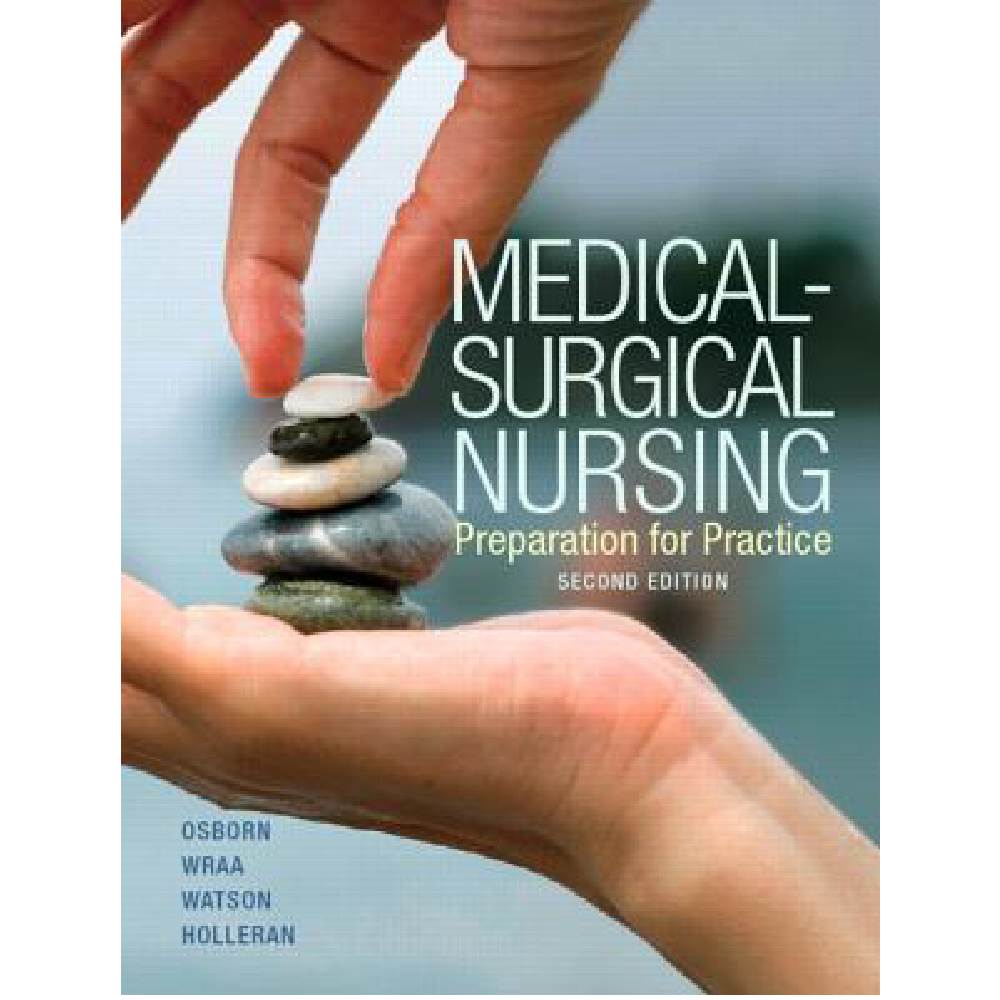

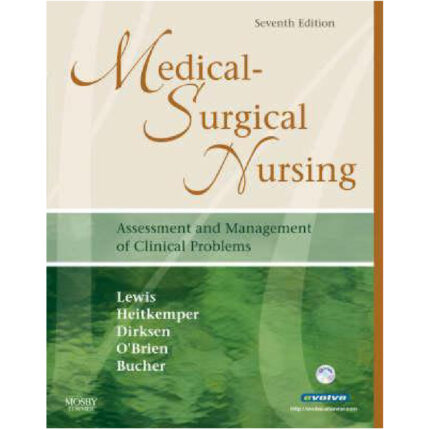
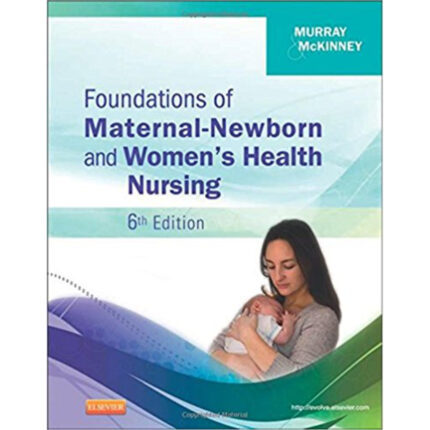




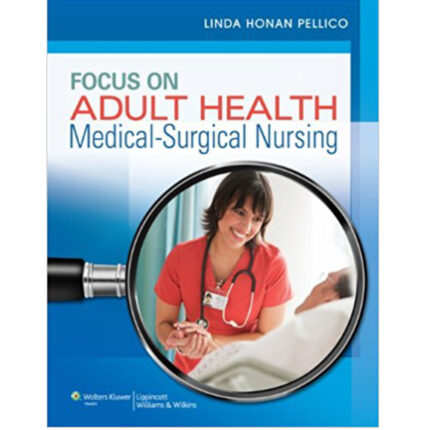

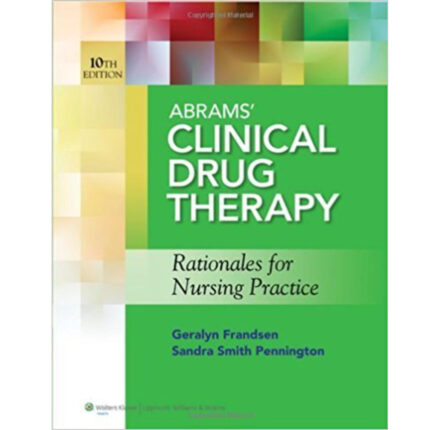
Reviews
There are no reviews yet.